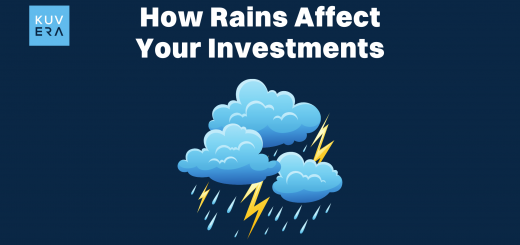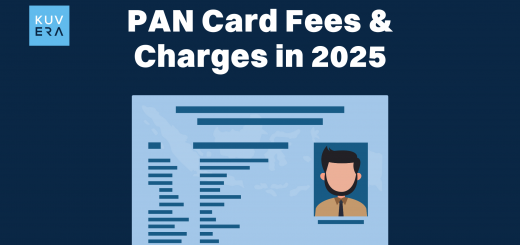In the world of credit cards and loans, a credit score can convey your repayment capacity to a bank, Non-Banking Financial Company (NBFC) or any lending platform.
Imagine you are lending money to a friend. Before you decide how much to lend and whether they will pay you back, you would want to know how good they are at repaying their debts. A credit score is a number that helps banks and lending institutions decide if someone is good at repaying loans, just like you would judge your friend’s reliability.
Banks and other lending institutions use your CIBIL score to decide whether to give you a loan. A high score means you are seen as reliable and likely to repay the money on time so that you can get loans more easily and at better interest rates. A low score means you might have trouble getting loans or have to pay higher interest rates.
Let’s say you want to buy a car but don’t have all the money upfront. You go to the bank for a loan. The bank checks your CIBIL score to see if you have a good record of paying back borrowed money. If your score is high, the bank trusts you and gives you a lower interest rate loan. If your score is low, the bank might give you the loan at a higher interest rate or might not give you the loan at all.
What is a Credit Score?
Its is a number that judges your creditworthiness, based on your credit history. Banks and lending institutions use this score to ascertain the risk of lending money to an individual. A higher score indicates lower risk, leading to lower interest rates on a loan.
How is My CIBIL Score Calculated?
A CIBIL score is calculated based on many factors such as your payment history, money owed to any bank, length of credit history, new credit taken and types of credit used. Each factor has a different weightage. For example, payment history often accounts for 30% of the CIBIL score. So, consistently paying your credit card bills on time and paying back your outstanding dues positively impacts your payment history and CIBIL score.
What is a Credit Bureau?
A credit bureau is an institution that collects and maintains individual credit information and sells it to lenders, creditors and interested parties in the form of a credit report. Banks, NBFCs and other digital lending platforms use the information from credit bureaus to make decisions about granting loans and credit.
How many Credit Bureaus are there in India?
There are four major credit bureaus in India. They are TransUnion CIBIL, Experian, Equifax and CRIF High Mark. These bureaus compile credit information and generate scores for individuals as per their credibility.
What Does My CIBIL Score Range Mean?
CIBIL score usually classifies individuals on a scale of poor, fair, good, or excellent credit holders. So, different ranges indicate the level of risk associated with lending to that particular individual. A good CIBIL score is somewhere between 700 and 900, suggesting the individual is a low-risk borrower.
What is Experian used for?
Experian is a score based on your creditworthiness by one of the credit bureaus in India. This score is used for credit reports and scores, along with identity theft protection and credit monitoring services. It provides scores that range from 300 to 900.
Here is the range for an Experian score:
- Excellent: 800 – 900
- Very Good: 750 – 799
- Good: 700 – 749
- Fair: 650 – 699
- Poor: 300 – 649
Can I Have a Negative Credit Score?
Yes, you can have a negative credit score. A negative score indicates that the person has a poor credit history, with missed payments, defaults or other negative information reported to the credit bureaus. This can happen when you have more debt than you can manage and the negative information is reported to the credit bureau. A negative score can make it very difficult to obtain loans, credit cards or other financial products, as lenders will view you as a high-risk borrower.
Which CRIF score is good?
A CRIF score is a score provided by CRIF High Mark, one of the credit bureaus. Any score above 700 is generally considered good, indicating that the borrower is financially reliable.
What Factors Influence My Credit Score?
Many factors influence your score, including payment history, credit utilisation, length of credit history, new credit and types of credit in use. For example, keeping your credit utilisation more than 30% and maxing out credit cards, can lower your score.
How Can I Improve My CIBIL Score?
You can improve your CIBIL score by positively changing your credit behaviour over time. Such steps include paying bills on time and reducing outstanding debt. To avoid delayed monthly payments, you can set up automatic payments. This will ensure timely payments, which can gradually increase your CIBIL score.
How Often Should I Check My CIBIL Score?
It is important to check your CIBIL score from time to time. You can track your progress by checking your CIBIL score every three to six months.
How Can Errors on My CIBIL Report Affect My Score?
The errors on your credit report can negatively impact your CIBIL score by reflecting your credit behaviour inaccurately. If a paid-off loan is incorrectly marked as unpaid, it could lower your score, but disputing this error can rectify your CIBIL score.
What Should I Do if I Don’t Have a Credit Score?
If you don’t have a credit score, it means you have little or no credit history. Building a credit history involves taking steps like getting a credit card or taking out a small loan and repaying it on time.
A credit score is an important indicator of your financial health, reflecting your creditworthiness. A good CIBIL score can provide you with better borrowing conditions and reflect a secured financial discipline. Thus, maintaining a strong credit score is an essential part of comprehensive financial management.
Click here to know about Index funds.
Interested in how we think about the markets?
Read more: Zen And The Art Of Investing
Watch here: Understanding Index Funds
Start investing through a platform that brings goal planning and investing to your fingertips. Visit kuvera.in to discover Direct Plans and Fixed Deposits and start investing today.












